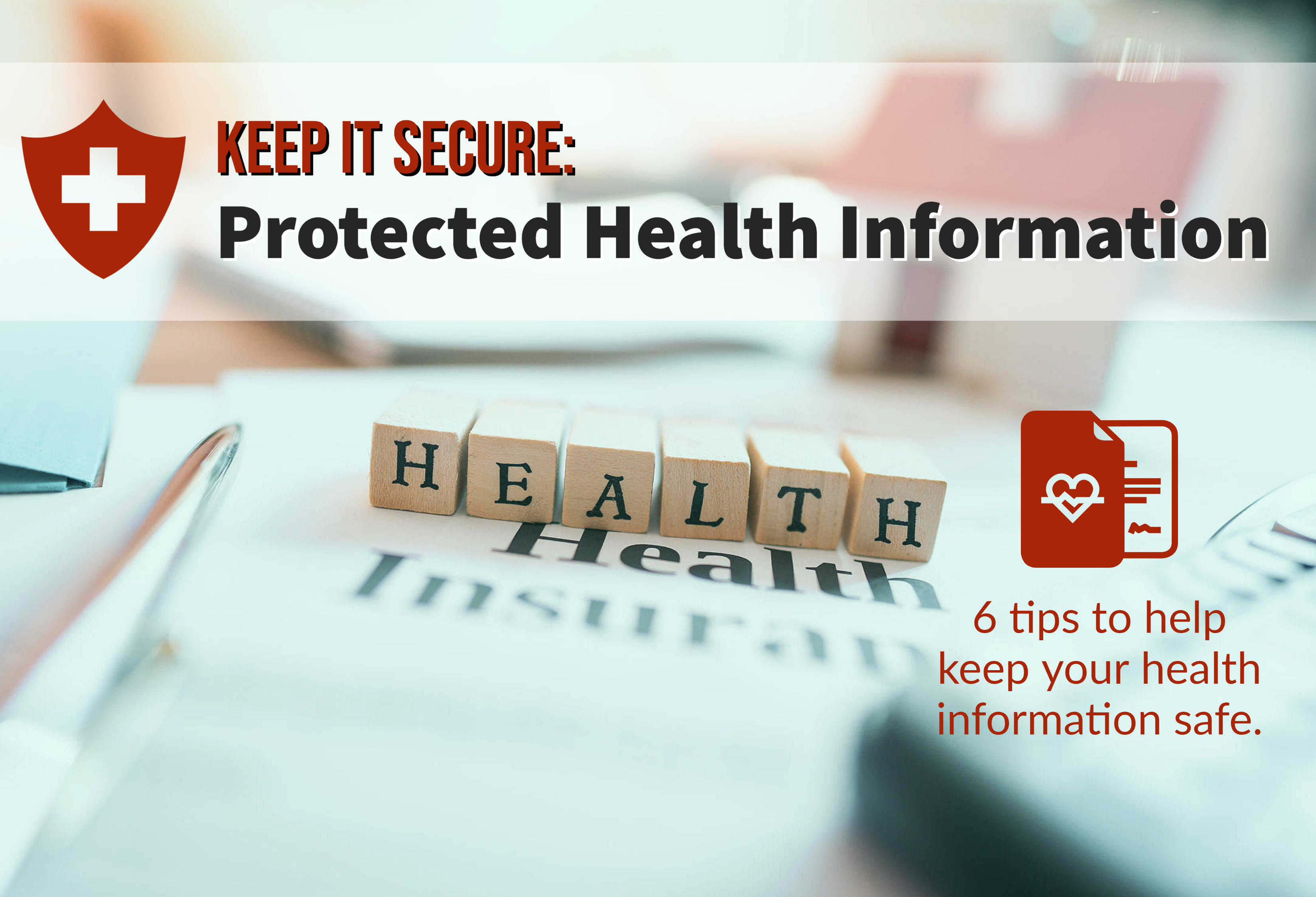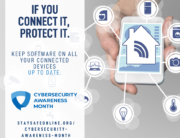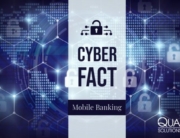It’s no secret that healthcare cyberattacks have been skyrocketing in these times, and that’s bad news for your Protected Health Information (PHI). The reasons behind the increase are just as complex as the sophisticated methods hackers are dreaming up to steal your data. However, the increase in patient involvement with their healthcare (for example, accessing records online) is definitely a factor that plays into a broader attack surface, according to Health and Human Services. Patients often compromise their healthcare identities by not following basic security guidelines.
Your health information is priceless to medical identity thieves who want access to prescription drugs or medical treatment. Don’t become easy prey! Check out these six quick tips to make it tougher for hackers to grab and misuse your health information.
1. Use strong passwords.
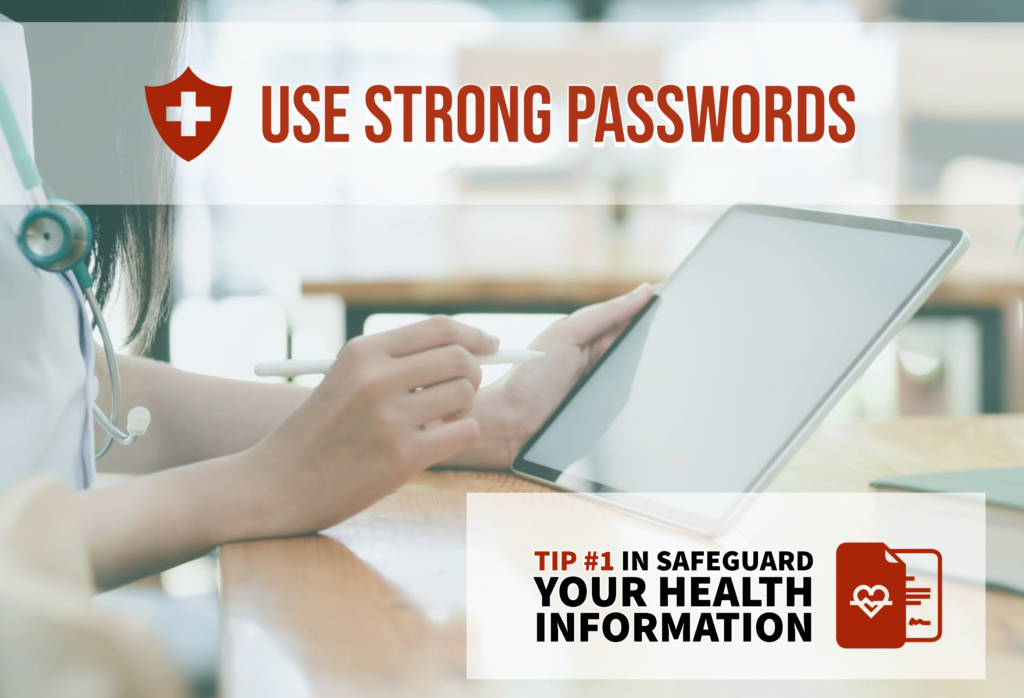
Do you access your healthcare records online? Make sure that password is rock solid. Don’t make your password consist of the names of your pets, your maiden name, or the year you were born. Get creative! Use at least eight characters with upper and lowercase letters and symbols.
2. Don’t Share Your Insurance Card.
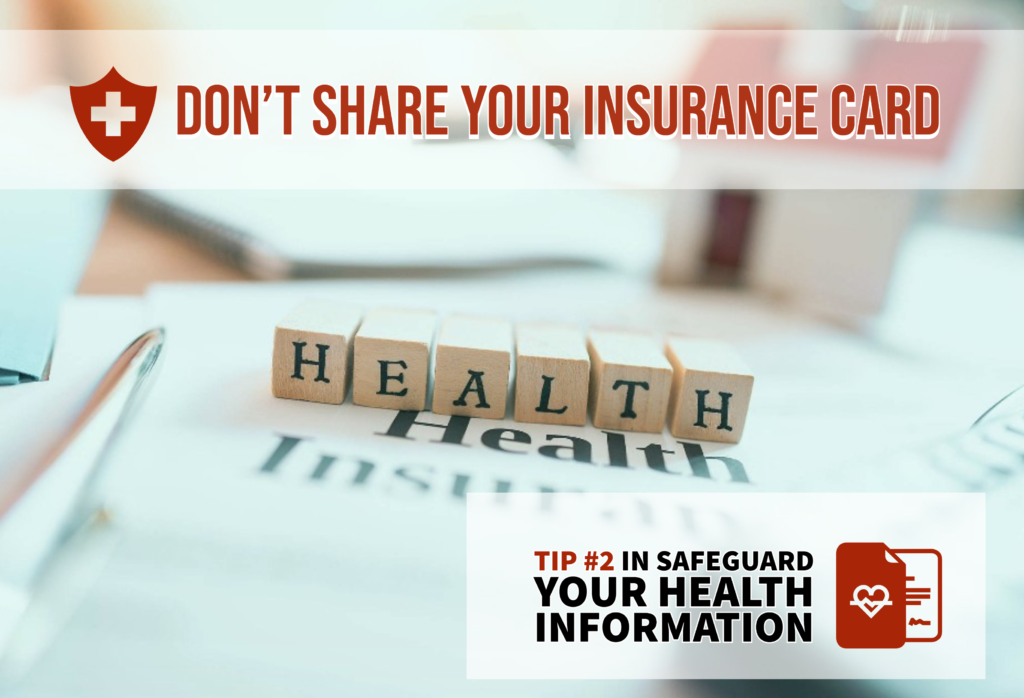
Never let anyone borrow your insurance card or information. That’s for your use and yours only. Repeat: Never let anyone borrow your insurance card or information.
3. Keep Track of Your Bills.

Review your medical bills. When you go to an appointment, ask to see the bill. Then, make sure it matches against what your health insurance co-pay should be according to your plan. If a copay seems abnormally high or if you are unexpectedly charged for a service, call the insurance company to verify the charge and amount.
4. Shred Your Old Medical Records.
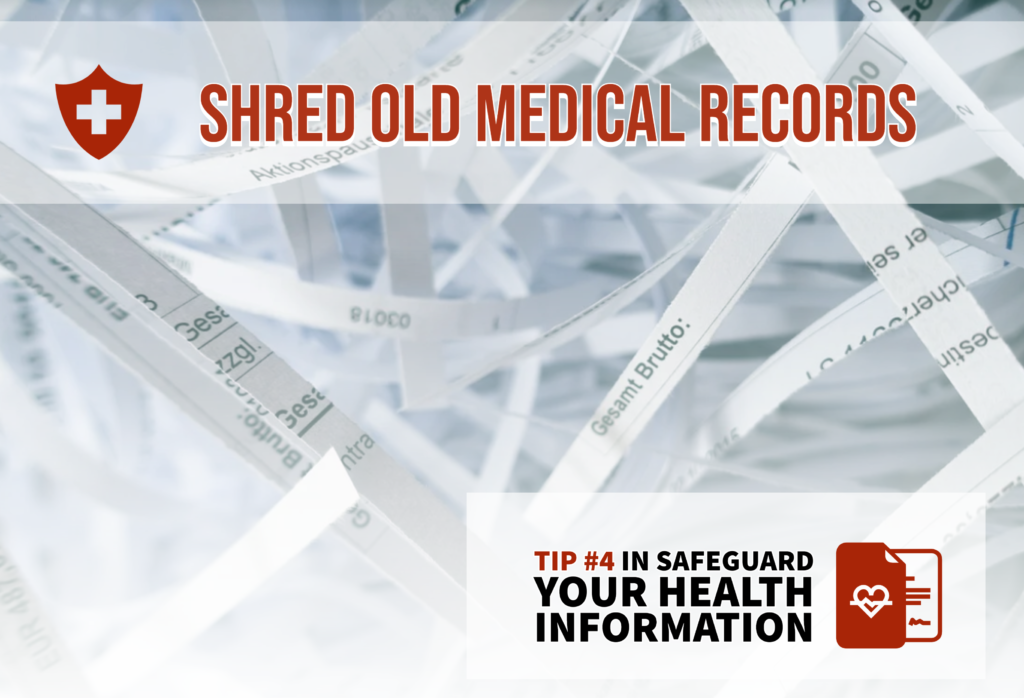
Throwing away your old medical records? Instead of going straight to the trash, shred or cut up your medical records until they are illegible. Then, and only then, throw them away.
5. Don’t Share Personal Health Information Online.
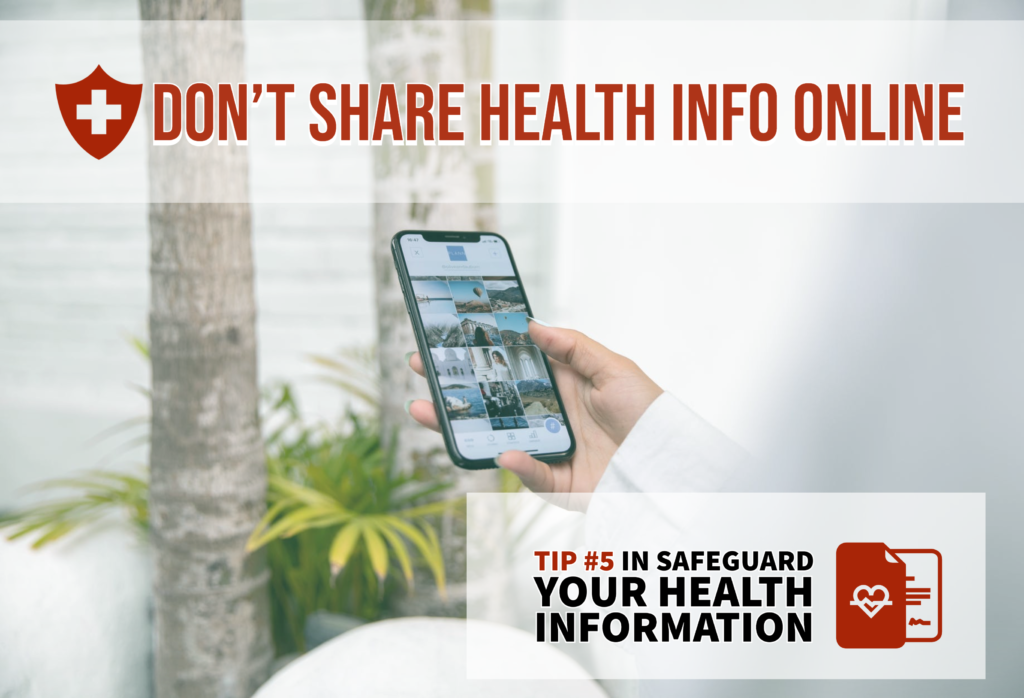
Never ever post anything online that you don’t want made public. Posting too much medical history or information can put you at risk of having your health identity stolen.
6. Avoid “Free” Health Services.
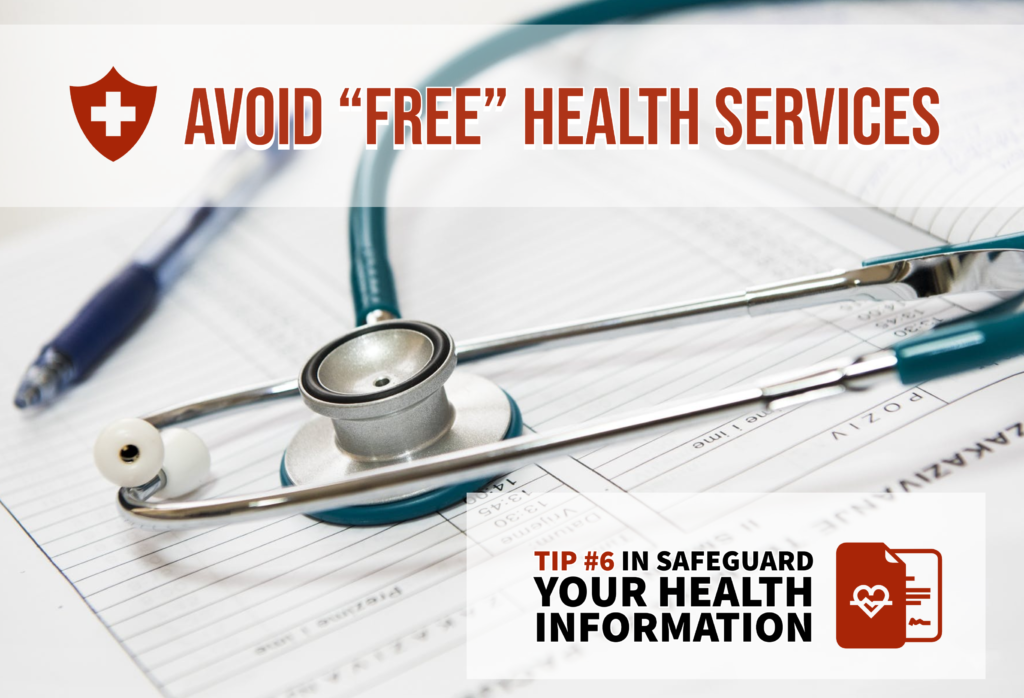
Beware health services advertised as “free.” A common healthcare scam is a message offering a free medical service. Sounds suspicious already, right? Here’s the catch – they want your medical information in exchange. And unfortunately, far too many people swallow it – hook, line and sinker.
Follow these six guidelines to safeguard your health information, and enjoy a more secure healthcare experience.
Did you enjoy this article? Click our social media links below to share the information with your friends, relatives and anyone who can benefit! This “Securing Internet-Connected Devices in Healthcare” Week of Cybersecurity Awareness Month, let’s make a commitment to putting the “Protected” back in PHI.
Follow Quanterion Solutions on social media for cybersecurity tips, resources and facts!


